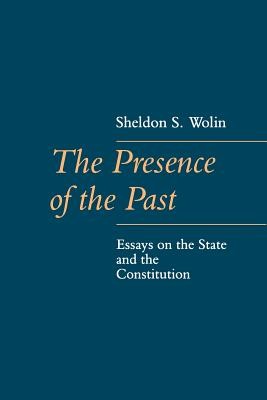
- We will send in 10–14 business days.
- Author: Sheldon S Wolin
- Publisher: Johns Hopkins University Press
- Year: 1990
- ISBN-10: 080184116X
- ISBN-13: 9780801841163
- Format: 15.2 x 22.9 x 1.5 cm, softcover
- Language: English
- SAVE -10% with code: EXTRA
Reviews
Description
All constitutions are ultimately about power, Sheldon Wolin writes: about how power is used and by whom, according to what understandings, and to whose advantage. The provisions of our own Constitution regarding slavery--and disregarding women--show that even a liberal constitution does not legitimate all types of politics. What is constituted, rather, are conditions that favor certain forms of politics over others.
The Presence of the Past explores the relationship between present-day American politics and the COnstitution of 1787. Wolin does not attempt to establish the "real" meaning of the document or the "intent" of the Founders. ("A constitution is not a revelation and the Philadelphia Convention was not an epiphanic moment.") Instead, he examines the Constitution from a breathtaking variety of perspectives, drawing meanings from the text that is our richest source of American values, myths, ideologies, and theories. And he shows how the Constitution created the American version of the modern state and how the ideology of bicentennialism works to obscure the contradictions between the state and democracy.
In a variety of ways, The Presence of the Past concerns itself with kinds of loss--the loss of democratic values, the weakening of democratic elements in our institutions, the stifling of democratic hopes. In the explorations of our constitutional culture, Wolin connects a wide range of topics, from a discussion of the Federalist Papers to the Irangate scandal, from the dieas of Montesquieu and Tocqueville to the political implications of Allan Bloom's polemic on education.
EXTRA 10 % discount with code: EXTRA
The promotion ends in 20d.04:25:24
The discount code is valid when purchasing from 10 €. Discounts do not stack.
- Author: Sheldon S Wolin
- Publisher: Johns Hopkins University Press
- Year: 1990
- ISBN-10: 080184116X
- ISBN-13: 9780801841163
- Format: 15.2 x 22.9 x 1.5 cm, softcover
- Language: English English
All constitutions are ultimately about power, Sheldon Wolin writes: about how power is used and by whom, according to what understandings, and to whose advantage. The provisions of our own Constitution regarding slavery--and disregarding women--show that even a liberal constitution does not legitimate all types of politics. What is constituted, rather, are conditions that favor certain forms of politics over others.
The Presence of the Past explores the relationship between present-day American politics and the COnstitution of 1787. Wolin does not attempt to establish the "real" meaning of the document or the "intent" of the Founders. ("A constitution is not a revelation and the Philadelphia Convention was not an epiphanic moment.") Instead, he examines the Constitution from a breathtaking variety of perspectives, drawing meanings from the text that is our richest source of American values, myths, ideologies, and theories. And he shows how the Constitution created the American version of the modern state and how the ideology of bicentennialism works to obscure the contradictions between the state and democracy.
In a variety of ways, The Presence of the Past concerns itself with kinds of loss--the loss of democratic values, the weakening of democratic elements in our institutions, the stifling of democratic hopes. In the explorations of our constitutional culture, Wolin connects a wide range of topics, from a discussion of the Federalist Papers to the Irangate scandal, from the dieas of Montesquieu and Tocqueville to the political implications of Allan Bloom's polemic on education.


Reviews